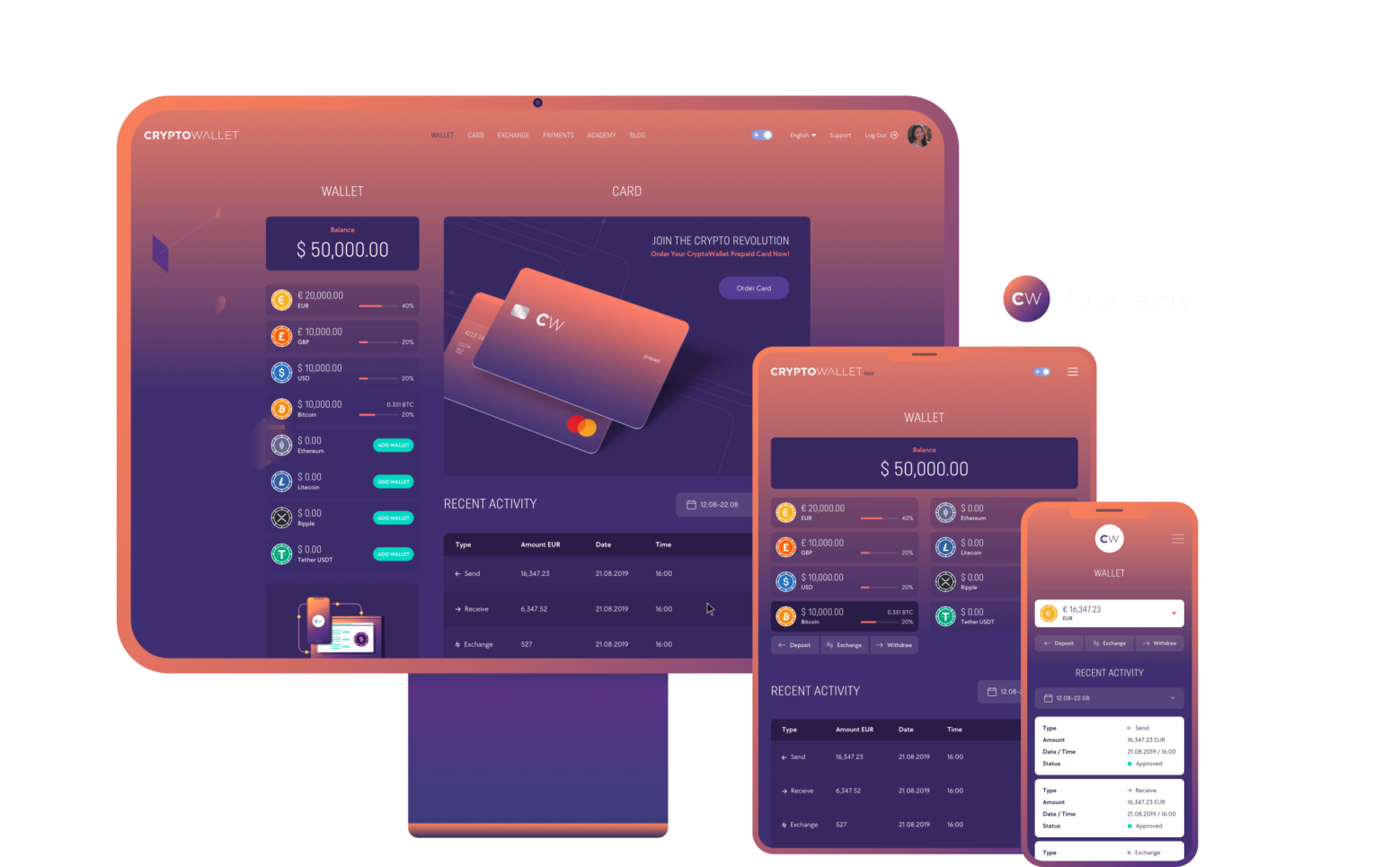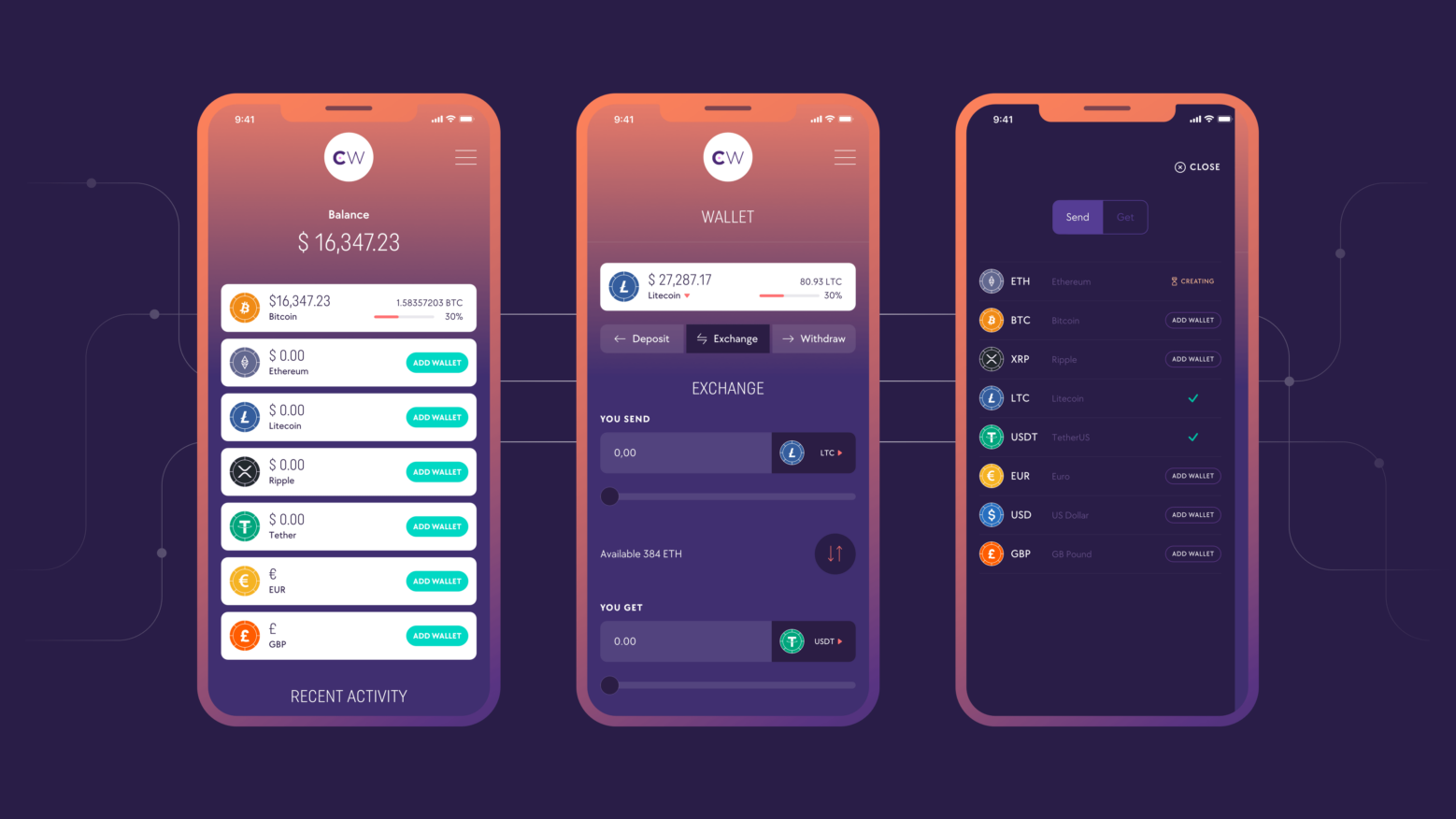How to Sell Crypto in Sweden in 2022
At long last, crypto is entering the spotlight. Throughout 2021, major banks and companies invested in or integrated Bitcoin and other cryptocurrencies, bringing mainstream attention to crypto.
If you’re an investor, there’s only one thing more fun than buying crypto — and that’s selling it! All investors hope to sell crypto for a profit someday, and this step-by-step guide will teach you everything you need to know to sell Bitcoin and crypto in Sweden.
How to Sell Crypto in Sweden
This article will take a look at the process of selling crypto, which stores accept crypto, and finally a list of brokers and exchanges you can use to sell. Let’s get started!
Which Stores Accept Crypto in Sweden?
Sweden has made great strides towards the full adoption of digital currencies. By 2018, only 1% of the value of transactions was in fiat currencies. The vast majority are using one form of digital money or the other. Many prefer them to fiat currencies as they’re private, secure, and enable faster payments. It follows that cryptocurrencies count for a fair amount of those transactions.
Today you can use your crypto holdings to buy goods and services from online and e-commerce stores. Other businesses that accept Bitcoin and other cryptocurrencies include online casinos and food delivery services.
Even Microsoft is getting in on the act allowing Swedish consumers to purchase their products in digital currency. It isn’t uncommon to find bars and restaurants that accept this form of payment. Here’s a list of Swedish sites and stores that accept crypto payments.
Crypto Brokers and Exchanges in Sweden
Sweden’s pro-crypto stance has encouraged renowned cryptocurrency exchanges to set up shop here. Though some may be domiciled elsewhere, they have a local presence in the country. They include Coinbase, Safello, Coinmama, Bitpanda, and eToro, just to mention a few. These cryptocurrency exchanges have established themselves here to tap into Sweden’s growing digital payment market.
How to Choose a Crypto Exchange
Your crypto trading experience is as good as your Decentralized Exchange. And today, you have a rich picking of crypto exchanges for your trading needs. All of these claim to be the real deal. Some of them have a solid reputation for providing quality service. Others, unfortunately, don’t have much to write home about.
So you must take time to research your available options before settling on any. The following sections detail questions you should ask yourself when considering the best exchange for you!
What’s the Exchange’s Volume and Liquidity?
An Exchange’s liquidity impacts your trading experience. Extremely liquid ones guarantee you the fulfillment of your orders in a short time. The reverse is true too. The last thing you need as a trader is a platform that can’t fill your orders in time.
What’s Your Desired Exchange’s Reach?
Every exchange has its area of operation. Whereas some have a global presence, others are geo-limited. For instance, one may be a European Exchange only. Therefore, it’s crucial to ensure the exchange operates in your jurisdiction. For this case, it’s key to ensure that the crypto exchange covers Sweden.
What are the Fees?
What you incur per transaction is essential too. Transaction fees vary with the exchanges. The fees charged are an important factor to consider as they impact your profitability. A good exchange will be the one that checks the other boxes at a minimal fee.
Are They Secure?
As an investor, you’d want guarantees that your holding is safe. Wouldn’t you? Crypto projects invest a lot in securing their holdings. But they’re not immune to security breaches. The platform you choose must give you the confidence that your funds are safe. Look for exchanges that offer such features as 2-step verification and cold storage.
How Private is the Exchange?
Many crypto enthusiasts value their privacy. They want a platform that will enable them to maintain their anonymity while transacting. Look for a less invasive exchange. That said, it’s good to expect some additional verification beyond your email address. The use of crypto to facilitate illegal activity necessitates these checks. There’s a growing concern that cryptos could be enablers of illicit activities such as money laundering.
How’s the User Interface and Experience?
A simple and intuitive trading Interface guarantees you a rich trading experience. Therefore look for a platform that’s thoughtfully put together and easy to navigate. A complex and poorly structured UI is a put-off.
Does the Exchange Support Your Financial Institution?
To buy and sell cryptos you need to fund your account. Look for an exchange that supports your financial institution. Find one that gives you the best range of payment methods. These include online bank transfers, bank wire, and banking card services. And while at that find ensure that offers diverse withdrawal methods at minimal withdrawal fees.
Which Wallets do They Support?
Cryptocurrency investors need crypto wallets for their transactions. These wallets are either custodial or non-custodial. Each has its own pros and cons. But the general consensus is that the latter is a more secure wallet compared to the former.
The Best Exchanges to Sell Your Crypto in Sweden
1 CryptoWallet.com #1 Recommended


CryptoWallet.com is much more than an exchange. It’s an all-in-one banking solution that lets you spend and even earn cryptocurrencies.
Open an IBAN and pay bills in crypto, receive a percentage of fees paid by anyone you refer to the platform, and walk into a store and spend crypto on goods and services using the crypto debit card!
Users can trade hundreds of cryptos like Bitcoin, Litecoin, Ethereum, Ripple, and Tether. Download the app to order your own crypto debit card here!
- Ease of use: CryptoWallet.com is designed with user-friendliness in mind and is very easy to use. Follow the on-screen instructions to spend or trade crypto.
- Fees: Fees vary based on trading activity
- Fiat currencies: EUR and GBP
- Cryptocurrencies: BTC, ETH, LTC, XRP, and USDT
- Limits: Limits vary based on trading activity



2 Indacoin

The UK-based Cryptocurrency platform has been in operation since 2013. It’s a pioneer in the fiat-crypto transaction space, a service it has provided since 2014. It has a presence in more than 180 countries. And one of its strong points is its quick transaction speeds.
- Ease of use: Indacoin has an easy onboarding process. For starters, you don’t have to create an account or verify your ID to trade on the platform. All you have to do is fill in a form to trade cryptos using your bank card. It’s a simple, clutter-free web-based platform. You’ll therefore find it easy to navigate between the main areas. Additionally, it’s text-based, requiring you to fill in the provided fields to access a given function.
- Fees: Zero fees for limit orders
- Fiat currencies: USD, EUR, and RUB.
- Cryptocurrencies: One of the exchange’s selling points is its extensive range of crypto offerings. It supports more than 140 different digital currencies. Among these are BTC, ETH, XUG, LTC, XCM, NEO, DASH, XMR, ETC, and OMG.
- Limits: $200 for first transaction, $5,000 for the first month.
3 ShapeShift

ShapeShift is your “instant” cryptocurrency exchange. It has a global presence and offers you a wide variety of crypto assets to trade in. The platform prides itself in timely and efficient crypto transactions.
You don’t need an account to trade on it. So forget sign-ups, ditch login info, and trade “instantly!” ShapeShift also values your privacy and independence. In keeping with its decentralized nature, it’s non-custodial. You’ll have full access to your seed phrase(s).
- Ease of use: ShapeShift has a simple trading interface that’s easy to navigate. Its dashboard allows you to trade multiple currencies from one place. Thus you can quickly switch between assets.
- Fees: ShapeShift charges a 0.5% fee on the spread. That is in addition to a flat miner fee. It updates its fees every thirty seconds
- Fiat currencies: None available
- Cryptocurrencies: 40+ on offer
- Limits: ShapeShift places transaction limits on your transactions, but these limits are not disclosed to users.
4 Huobi

Huobi is a Chinese digital assets exchange with headquarters in Singapore. It’s Asia’s largest cryptocurrency exchange. And apart from cryptos, it also supports ICO. It has been in operation since 2013 and only relocated to Singapore following the Chinese government crackdown on cryptos. Its Huobi Global crypto exchange supports a wide variety of altcoins and stablecoins.
- Ease of use: Huobi’s website is easy to navigate. It is fast and very responsive for a site with high liquidity. The site has two languages- English and Mandarin. Its Smartchain tool helps you to research different crypto assets using more than 50 indicators.
- Fees: Deposits and withdrawals are strictly in cryptos. They, therefore, don’t attract fees. It charges a uniform 0.2% taker, and maker fee drops to as low as 0.1%though as the trading volumes increase.
- Fiat currencies: The platform supports 57 different fiat currencies. Prominent among these are USD, EUR, GBP, CAD, and AUD.
- Cryptocurrencies: Like the big exchange that it is, Houbi has an extensive listing of crypto assets. You can trade in more than 348 cryptocurrencies on their site. These include the major currencies such as BTC and ETH, in addition to many other altcoins.
- Limits: Huobi sets a withdrawal limit of 0.1 BTC per day for unverified account holders. It is 2.5% ETH for Ethereum and 0.6 for BCH. For XRP, the limit is 2500, while for Litecoin, it is 5 LTC per day.
5 Bitstamp

Bitstamp is a leading crypto trading platform with a global reach. It’s also one of the longest-serving exchanges, having set up shop in 2011. It enables both individuals and institutions to access high liquidity crypto trading experiences instantly and 24/7.
- Ease of use: Bitstamp’s user interface is one of the most intuitive ones around. It allows you to deposit currency using a range of payment methods instantly. Also, you can directly cash out funds from your crypto wallet to your bank account. Overall, you’ll find it an easy-to-use platform providing you with an enjoyable trading experience.
- Fees: Bitstamp operates a tiered fees system. It charges you fees based on your monthly trading volume. For transactions under $10,000, it charges a trading fee at the rate of 0.5%. And for transactions exceeding $10 million, it levies a 0.10% fee.
- Fiat currencies: Bitstamp supports three fiat currencies. You may trade in either the USD, Euro, or Sterling Pounds.
- Cryptocurrencies: The platform supports only the major cryptocurrencies. On it, you can trade the cryptocurrencies: Bitcoin (BTC), Ethereum (ETH), Litecoin (LTC), Ripple (XRP), Bitcoin Cash (BCH), Stellar Lumens (XLM), Paxos Standard Token (PAX).
- Limits: The platform places three types of limits on your crypto transactions. The minimum amount of Crypto you can buy is 50 USD/EUR/GBP. The daily limit is 2500 USD/EUR/GBP, and the monthly limit is 20,000 USD/EUR/GBP.
6 BC Bitcoin

BC Bitcoin is a leading crypto brokerage exchange based in the UK. It started Its operations in 2017 and describes itself as the UK’s most trusted broker. Although it’s mainly a BTC brokerage service, It supports a wide selection of digital currencies. And it offers users bespoke trading experiences.
- Ease of use: BC Bitcoin has a simple and intuitive interface. Its easy-to-navigate dashboard allows you to trade cryptos at a click. Further, it’s a bespoke exchange enabling you to tailor-make services. The platform supports 12 different languages and has video guides to help you along the way.
- Fees: This Bitcoin exchange levies transaction fees depending on the banking method. For bank wire transfers, you’ll incur a 4% charge for BTC transactions. The same will attract a 5% fee for other coins. Additionally, orders above 5000 GBP/EUR attract a 4% fee. Debit and credit card transactions draw a 2.5% fee.
- Fiat currencies: You have the option of trading three fiat currencies on this exchange. These are USD, EUR, and GBP.
- Cryptocurrencies: BC Bitcoin offers you a wide selection of crypto assets that you can trade in. At the moment, you can trade in 207 different cryptocurrencies. The majors include BTC, ETH, ADA, BNB, LINK, DAI, ETC, and DGB.
- Limits: The site places no limits on the amount of crypto you can trade in.
7 Changelly

Instant crypto exchanges don’t come better than Changelly. Since launching in 2015, the platform has distinguished itself for fast transaction times. The Hong Kong-based exchange allows you to transact in over 200 digital assets. Besides, it accepts payments in major fiat currencies. Its crypto to crypto rates are next to none.
- Ease of use: The platform is intuitive and straightforward. It provides you with the tools you’ll need to find the best rates quickly. Moreover, you can trade in multiple currencies using a variety of payment platforms from one place.
- Fees: Changelly charges a flat fee of 0.25% of all crypto transactions. It factors the fees into its exchange rate, so you don’t have to worry about hidden charges. For Crypto to fiat transactions, it charges a 5% fee. This fee is regardless of the Crypto in question or the recipient’s home country. On its pro platform, It’ll charge you maker and taker fees that vary with the volume traded.
- Fiat currencies: Besides cryptos, Changelly also accepts payments in three fiat currencies. These are the USD, EUR, and GBP.
- Cryptocurrencies: The platform supports 210 cryptocurrencies. These include BTC, ETH, XRP, ADA, AAVE, and ADX, among others.
- Limits: Changelly doesn’t restrict the maximum amounts of Crypto you can transact in. But in some instances, it places restrictions on the minimum amounts it’d accept.
8 CoinSwitch

CoinSwitch is an Indian-based crypto outfit established in 2017. It isn’t a cryptocurrency exchange per se’; it’s an aggregator. This platform connects you to multiple digital asset exchanges at once. Thus it enables you to get the best exchange rates for your transactions. It supports a wide variety of cryptos.
- Ease of use: The platform has an easy onboarding process. You don’t need to sign up or undergo KYC verifications to get started. Additionally, it’s intuitive, easing its usage even for newbies.
- Fees: CoinSwitch will charge you a trading fee ranging from 0% to 0.49% of the total trade value, depending on the trading volume. Additionally, you may incur fees from the exchange you’re trading on and network fees.
- Fiat currencies: CoinSwitch only supports crypto-to-crypto payments.
- Cryptocurrencies: CoinSwitch facilitates your trading in over 400 cryptocurrencies and over 45,000 trading pairs. In addition to the major cryptos, it supports hundreds of altcoins.
- Limits: CoinSwitch doesn’t cap your transactions. You may trade as much as you want, depending on the available liquidity. It does caution against small trades, though. They advise you to ensure that your trading size is big enough to cover its fees.
9 Bitpanda

Founded in 2014, Bitpanda is Europe’s leading cryptocurrency broker. It has its headquarters in Vienna. Though it’s predominantly a Bitcoin exchange, it supports other cryptos.
- Ease of use: The exchange has an attractive and very intuitive dashboard. This simple interface enables easy access to the crypto marketplace. Also, it allows you a variety of payment options hence simplifying trading for beginners.
- Fees: Bitpanda does charge fees, but they are not clearly stated when you buy or sell cryptocurrency. The fees are part of the price and differ depending on the payment method used. However, they average around 5% per transaction.
- Fiat currencies: Bitpanda accepts four major fiat currencies. They are USD, EUR, GBP, and Swiss franc CHF.
- Cryptocurrencies: The platform supports more than 60 cryptocurrencies. Apart from the majors that are BTC, ETH, and LTC, you have a large selection of coins on offer.
- Limits: For the starter level, it has a daily buy/sell limit of €1,000. The monthly and total buy/sell maximum limits are € 7,500 and €30,000, respectively, with higher limits available for higher levels.
10 Coinmama

Coinmama is an Israeli crypto brokerage firm. Its primary market is Bitcoin though it serves other Cryptocurrencies too. Being a brokerage firm means that it doesn’t allow peer-to-peer trading. Instead, you trade cryptos directly from them. It serves 188 countries globally.
- Ease of use: The site’s straightforward design guarantees you an easy transaction process. Beginners will find its user-friendly interface a big help in their crypto journey.
- Fees: Coinmama’s fees factor in TradeBlock’s XBX list, which is an average market rate. It calculates its rates using the formula XBX + 2%. Additionally, it charges a commission of up to 3.90% for buy transactions and 0.9% for sell transactions. You’ll incur a 5% momentum fee for credit and debit card transactions.
- Fiat currencies: The platform supports various fiat currencies. You can transact USD, EUR, AUD, CAD, GBP, JPY on it.
- Cryptocurrencies: Coinmama has ten cryptocurrencies on offer The assets include BTC, LTC, CRP, Tezos, and BCH.
- Limits: Coinmama places transaction limits depending on your level of verification. Its three-tier limit system is as follows: Level 1 users have a monthly buy/sell limit of $15,000 over 50 orders. Level 2 gives you a buy/sell limit of $50,000 per month over 50 orders. And in level 3, you’ll have a monthly buy/sell limit of $100,000 over 50 orders. You can increase your limit by seeking Coinmama’s VIP verification.
FAQ
Is cryptocurrency legal in Sweden?
Swedish lawmakers have had little to say on crypto. Digital assets are not recognized by law in any way, nor are they banned. However, the government’s continued pursuit of the e-Krona project is a tacit endorsement of cryptocurrency payments and their underlying technology Blockchain. The country sees the e-Krona as the long-term replacement of the Swedish Krona.
Sweden’s Financial Supervisory Authority, the Finansinspektionen, believes it has oversight over cryptos. It bases that on the fact that one can trade them. Trading is a financial service that’s subject to compulsory reporting requirements. Riksbank, Sweden’s Central Bank, stated in a 2018 financial report that Bitcoin is not money.
Do I need a license to sell cryptocurrency?
If you’re an individual that’s trading crypto privately, then you wouldn’t need a license. But if you’re running a peer-to-peer cryptocurrency project, then you’ll require a license and permissions from the relevant regulators.
Additionally, you’ll have to comply with KYC, AML, and CTF regulations. These are in addition to the usual email address verification. They are meant to curb illegal transactions in crypto including money laundering as well as financing terror and the drug trade. Finally, Sweden taxes all gains from crypto transactions.
Which countries have banned crypto?
Many governments have a dim view of Cryptocurrencies, especially Bitcoin. They continue to discourage their use, and some have outrightly banned them. Countries where crypto trading is illegal or restricted in some way include China, Russia, Bolivia, Thailand, India, Ecuador, Iran, Bangladesh, Turkey, Colombia, Nepal, Vietnam, Algeria, Qatar, Morocco, and Saudi Arabia.
Which country owns the most crypto?
Vietnam is the country with the most crypto ownership. Up to 40% of the population own cryptos.
How to identify a fraud cryptocurrency?
The crypto payment market is teeming with fraudsters itching to make a quick buck off of unsuspecting users. You need to be careful about how you go about your business in the sector. The following is a quick guide that’ll help you identify and avoid crypto fraud:
- There’s sketchy information about the team pushing the project. A genuine project will have complete info on the developers and founders.
- The developers’ cannot prove their qualifications and experiences. Developers of solid projects have proof of their experience.
- The project’s whitepaper is fundamentally unsound. On the other hand, a genuine project will clearly explain its background, goals, and strategies. Also, it’ll have a clear implementation timeline. Stay away from projects without whitepapers.
- Mystery surrounds their ICOs. A genuine project should ease your participation in their ICO as they show clearly the progress of their ICOs.
- They promise impossible returns in a short time, i.e., they sell you the get rich quick scheme.